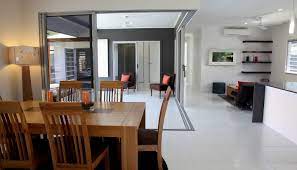What are the benefits of an Energy Efficient Home? For starters, a home that is energy efficient will be comfortable year-round and will be free of drafts. It will also have excellent air quality and ventilation. A programmable thermostat will help you control the temperature when you’re away or at night. High-efficiency appliances and fixtures will also reduce energy bills and carbon footprint. In addition, these features will increase the resale value of your home.
Air infiltration reduces energy loss
In an energy-efficient home, air infiltration is minimized. The process of air sealing reduces energy loss and ensures a more comfortable indoor environment. The process can be done through smoke pencils or blower doors. Air sealing also prevents moisture condensation and uncomfortable drafts. This process can significantly reduce heating and cooling costs. Additionally, it can help you and your family enjoy a healthier indoor environment.
Although air sealing may not be the most cost-effective solution, it can make a huge difference in comfort and energy costs. Just one eighth inch gap under a 36-inch door lets in the equivalent of 2.4 inches of air. In addition, air movement can lead to uncomfortable temperatures and can increase the chance of a cold or warm feeling, which can result in discomfort. Sealing these gaps will reduce energy use and keep more money in your pocket.
Insulation reduces heat loss
Using energy efficient materials to construct your home is a great way to save money, but it may seem difficult. Even a small amount of insulation will make a huge difference in your energy bill. Insulate your windows, doors, attic, crawl space, and even your hot water cylinder. These simple changes can help you lower your heating costs and carbon emissions by 115 kilograms per year.
The most common types of insulation slow the movement of heat. Reflective insulation systems and radiant barriers help prevent heat gain. In order to reduce heat transfer, the reflective surfaces must be in contact with the air space. Heat flows from warmer to cooler areas. This happens primarily in homes built before 1960. The higher the R-value, the better the insulation will keep the interior temperature stable. However, the average home will suffer from heat loss of between 10 and 20 percent.
ICFs are energy efficient
ICFs are energy-efficient envelopes because they add thermal mass, which delays the transfer of energy from the outside environment to the inside. The stored heat diffuses during the night, leaving the interior of the house cool. The mass of concrete also acts as thermal storage, resulting in increased energy efficiency. This article discusses the benefits of ICFs and their use in wall assemblies. Read on to learn about the many ways they can save energy.
Another benefit of ICFs is their environmental friendliness. Each ICF building constructed saves the equivalent of 10 trees. In addition, they require less resources for maintenance compared to other types of materials. The environmental benefit of ICFs is clear: they help protect our planet. Each ICF building saves up to 10 trees, which equates to one more per home. What’s more, ICF buildings last longer than traditional wood and require less resources than traditional structures.
Energy Star certified appliances reduce energy bills
Purchasing Energy Star certified appliances can lower your electricity bill significantly. They offer various features to reduce energy consumption, including cold water settings and air circulation. Some appliances use half the energy of a standard incandescent bulb. They also conserve natural resources. You can find more information about Energy Star certified products on their website. Energy Star appliances are also better for the environment. This is an important factor to consider when buying new appliances.
In addition to reducing your utility bills, Energy Star certified appliances are not necessarily more expensive than their counterparts. They can even be the same price as their conventional counterparts. One thing to keep in mind is that you should buy the right sized appliance for your home. Otherwise, you might be spending a lot of money on utility bills and not realizing the energy savings. To find out which Energy Star appliances can save you the most money, visit the U.S. Department of Energy. You can also use Excel-based energy efficiency calculators.
Tax incentives for energy-efficient systems
Energy-efficient home systems and improvements can save homeowners and taxpayers money on their taxes. The federal government offers tax incentives for energy-efficient improvements, such as solar panels and wind turbines. Tax credits are an easy and convenient way to lower your taxes. To learn more about energy-efficient home improvements, check out the following resources:
The Federal Government offers tax credits to homeowners who install renewable energy systems. While solar panels and wind turbines are the most commonly used renewable energy sources in homes, the program includes geothermal energy, biomass fuel systems, and solar water heaters. These systems can lower your utility bills by a significant amount. If you live in one of the qualifying states, you could qualify for a 30% tax credit. This tax credit applies only to primary residences and qualifying systems and equipment.



